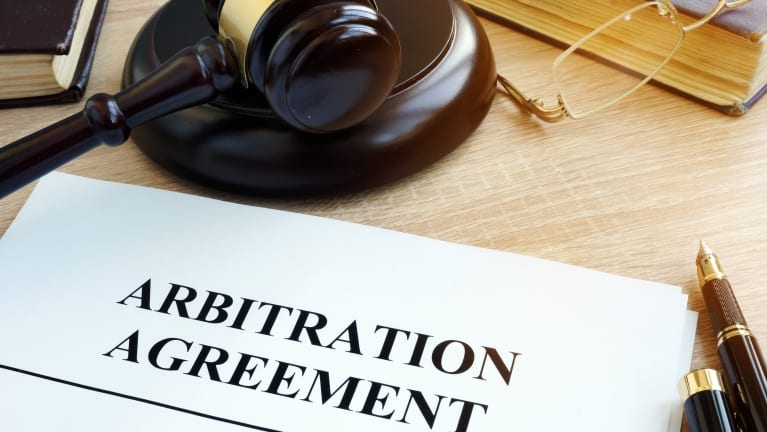

Employees can continue pursuing their collective claims over labor violations even when their individual claims go to arbitration, the California Supreme Court recently ruled.
In Adolph v. Uber Technologies, the court concluded on July 17 that a plaintiff whose individual California Private Attorneys General Act (PAGA) claims are sent to arbitration does not lose standing to litigate class-action claims in court.
“On first blush, the decision is disappointing from an employer’s perspective, but it’s not all bad,” said Andrew Paley, an attorney with Seyfarth in Los Angeles.
“There is still a silver lining in the decision for employers,” he said, because the class-action claims that remain in court must be stayed until the arbitration ends. “For the employer, what that means is you’re not dealing with a dual-track litigation where you have both the arbitration and the representative action going on simultaneously.”
Uber did not respond to a request for comment.
Background
In 2019, Uber Eats delivery drivers in California filed a class-action lawsuit, alleging that the drivers were misclassified as independent contractors. As a result, the ridesharing company didn’t reimburse them for certain business expenses.
The named plaintiff amended the lawsuit to include a cause of action under PAGA, which permits workers to sue an employer for labor code violations as an agent or proxy of the state. Uber moved to compel the named plaintiff to arbitrate his individual claims and dismiss his claims in the class action.
In 2022, the U.S. Supreme Court held in Viking River Cruises v. Moriana that companies can compel arbitration of an employee’s individual PAGA claims regarding labor code violations. This ruling
pre-empted PAGA.
Uber argued that separating individual and collective components of a PAGA claim into arbitration and court proceedings severs the two components, and each component must independently satisfy PAGA’s standing requirements.
However, the California Supreme Court disagreed: “The individual PAGA claims in arbitration remain part of the same lawsuit as the representative claims remaining in court. Thus, plaintiffs are pursuing a single PAGA action on behalf of themselves and other current or former employees.”
If the employer wins in arbitration, that ends the class action because the plaintiff no longer has legal standing. It’s the “functional equivalent” of decertifying a class in a collective action, Paley said.
“The good news for employers is that you end up litigating in the individual arbitration where the discovery is focused solely on the individual plaintiff,” Paley said. Otherwise, there would be “incredibly burdensome and costly discovery battles.”
Uber argued that a PAGA plaintiff must have a financial stake in the outcome of the collective court case, and if an arbitrator grants an award to the plaintiff for individual claims, the plaintiff loses standing to litigate collective claims because they have no financial stake in those claims.
However, the California Supreme Court concluded, “A PAGA plaintiff compelled to arbitrate individual claims may have a personal stake in the litigation of nonindividual claims.”
Even with the latest ruling, employers “are still certainly in a better position than they were pre-Viking River,” Paley said.
Practical Steps
Many businesses require workers to sign arbitration agreements because arbitration can be faster and less costly than litigation. In general, employers don’t want to arbitrate the whole PAGA claim because they can’t appeal an arbitration decision if it goes against them, said George Howard, an attorney with Quarles & Brady in San Diego.
To avoid PAGA lawsuits, Paley recommended that companies audit their HR and pay practices to confirm they are legally compliant. “The best way to try to prevent and ultimately win any of these cases is to ensure that your policies and procedures are fully compliant,” he said.
In addition, employers should update their arbitration agreements because there are “a lot of old agreements out there floating around,” Howard said.
Employers should consider whether they actually want and need to use arbitration agreements. “Not every employer wants an arbitration provision anyway,” he noted. “A lot of the larger employers have them.”

